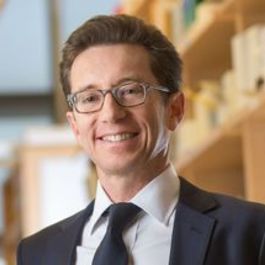Call Now Open
2026 Oxford-Harrington Rare Disease Scholar Award
June 04, 2019
Key Points

Tek Image / Science Photo Library / Getty Images
Morgan Stanley is starting a new program that will let clients donate money to find treatments and cures for diseases.
The program, called Morgan Stanley GIFT Cures, began today in tandem with a two-day conference the financial services firm is hosting.
All donations made to Morgan Stanley GIFT Cures will be managed through a donor-advised fund to help the mission of the Harrington Discovery Institute.
The Harrington Discovery Institute, in Cleveland, Ohio, works to identify new drug development research and approaches from academic institutions and help turn those discoveries into treatments. It was created in 2012 with $50 million from the Harrington family, who are medical supply entrepreneurs.
The Morgan Stanley GIFT Cures program is focusing on efforts to develop treatments for diseases such as Alzheimer’s, cancer, cardiovascular disease, gastrointestinal disease and immune disorders, among others. Clients can choose to either back efforts for a specific condition or broader research that is taking place.
“Our clients will have an opportunity to really be incredibly strategic with their philanthropy and their generosity,” said Melanie Schnoll Begun, head of philanthropy management at Morgan Stanley.
Many clients typically choose to give to hospitals or other health-care organizations that helped treat family members who have been affected by certain conditions, Begun said.
Now, they will also be able to make targeted donations to help come up with cures for those diseases, she said.
“The reality is that there are many more diseases than there are drugs to treat them,” said Dr. Jonathan Stamler, president of the Harrington Discovery Institute.
There are about 10,000 categories of disease, but only approximately 500 drugs that treat them, according to Stamler. About 200 to 300 new diseases are discovered each year.
“There are literally hundreds of millions of people who suffer from diseases for which treatments are not available,” Stamler said.
The new program comes at a time when donor-advised fund strategies are growing in popularity. Donor-advised funds let individuals put money they plan to give away in one account. Contributions are eligible for a tax deduction in the year they are made. Individuals, however, can let the money stay there until they designate a charity or non-profit.

Cardiovascular
University Hospitals - Cleveland
Harrington Investigators